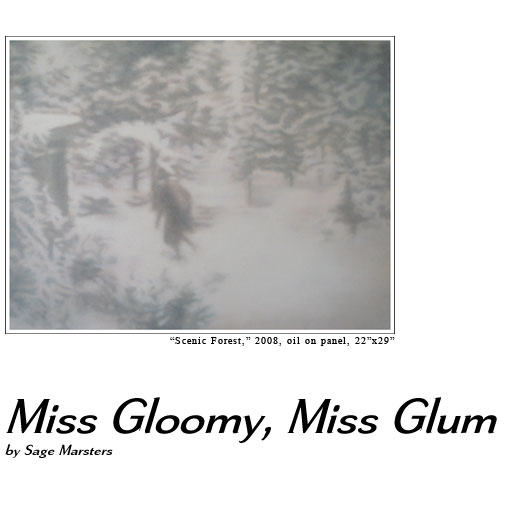
He surfaces behind me while I’m standing on the sidewalk, hungry and thinking about frozen yogurt, they have it everywhere here, it’s what I’ve lived on since I arrived in San Francisco a few months ago, cigarettes and frozen yogurt, pastel colors served from plastic udders into Styrofoam tubs, cool, clean, chemical flavors outlining my stomach.
Without touching me, he comes as close as he can. I can hear him breathing, smelling me, Mountain Mist, the oil I ran across my neck with a tiny silver wand in a store early this morning. “Hey. Look at you,” he says at my shoulder. I cross my arms, hold tight against my empty stomach. I don’t know anyone here. I know a dentist and a manager and a man named Richard—a friend of my uncle’s from when they were in Vietnam who took me out one night for tiramisu and then drove me lurching sweet and sick up and down the hills in his red car.
This is someone new, finding me, someone unavoidable, like a storm or cancer. It’s something I was brought up with, people coming into your life.
“Look at Little Miss Sad and Gloomy,” he says. “Miss Gloomy. Miss Gloomy Glum.”
And he’s naming me, too. He laughs, his breath warm against my ear. “Are you Miss Gloomy?”
I blink and turn to him, keeping my arms crossed, raising my chin, stepping back. His eyes are chlorine-blue, the wildness of a TV mystic, his hair ragged and startled-looking, as though someone recently chopped at it with blunt scissors. He’s mimicking me, folding his arms across his chest, frowning, turning his mouth down, pressing his chin to his neck. I can’t tell how old he is. Nineteen, thirty-nine, pick one. Black and white checkered pants and a purple t-shirt, a cook maybe. But the pants are splattered with green and orange paint, not food. A cook: eggs, bacon, grilled cheese, a friendly dive. An artist: huge canvases, flames leaping at the edges, charred vines, twisting roots.
He ends his mimicking, slackening back into himself. “You always stand like that?” he asks. “Isn’t that a sign, like in psychology, like you’re trying to hide something? Are you hiding?”
“No,” I say. “I don’t know.” I keep my arms crossed. He’s a cook and an artist, or nothing, or anyone. Maybe the corners of his mouth taste like egg yolk; maybe his hands, the knuckles and down between the fingers, smell of paint thinner.
He reaches forward. He takes hold of my elbows and tugs gently, keeps tugging.
“What?” I ask.
“Come on,” he says. “Come on.” His fingertips are cold and firm. He unfolds my arms. It’s like a dance he’s beginning, a polka up Powell through the smell of pigeons and urine and onions and ice cream, past dingy palm trees and smudged doorways and sticky shrines, the water shimmering in the distance, the glaucous islands.
He shakes out my arms, arranges them at my sides. “There,” he says. “Much better. You look better this way. Much, much better.”
I smile, shrug, look down at myself, at my arms hanging like wood. He’s right—this is a relief. I say, “Okay.” I have nothing to do, only a little money, an American Express card I won’t be able to pay at the end of the month, a room that is really only a closet. It’s only the morning. “It’s a habit,” I say.
“It’s negative,” he says. “No one will find you.”
-----
Page 1 2 3 4 5 6

